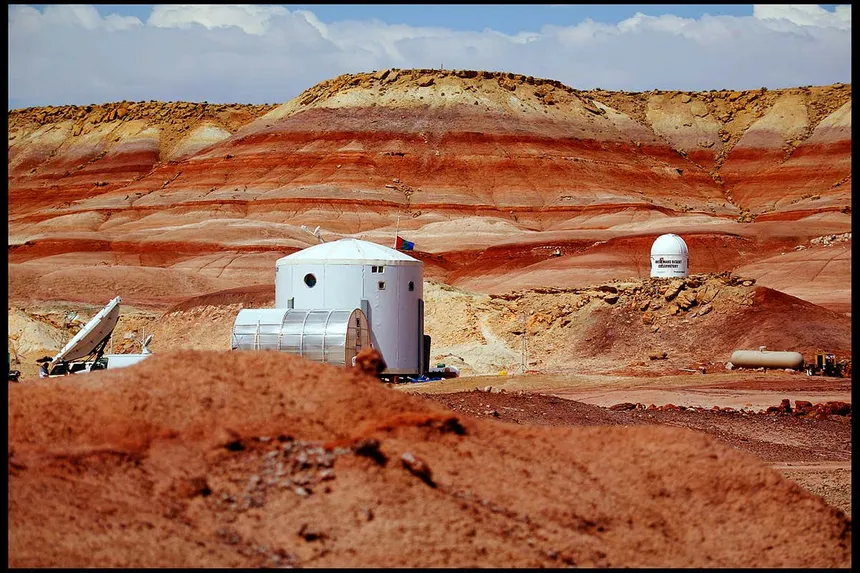As NASA’s Crew Health and Performance Exploration Analog (CHAPEA) mission comes to a close, the four volunteers who spent 378 days in a simulated Mars habitat are set to exit the confined space and return to “Earth” life. The experiment, which began in 2021, aimed to test the extent to which humans can adapt to the extreme conditions of a long-duration mission to Mars.
The volunteers, who lived in a 3D-printed habitat designed to mimic the harsh Martian environment, underwent a range of challenges to simulate the daily life of a Martian crew. They performed science jobs, grew and harvested vegetables, maintained their equipment and habitat, and operated under additional stressors such as communication delays with Earth, resource limitations, and isolation.
One of the primary goals of the experiment was to examine the physical and mental health implications of living in a confined environment for an extended period. With a limited diet and high exercise demands, researchers wanted to assess the effects of these conditions on the volunteers’ physical health, as well as their group psychology and mental well-being during prolonged isolation.
To achieve this, the volunteers had to endure a rigorous daily routine that included simulated “Marswalks” using a treadmill, where they had to walk for long periods. They also had to maintain their equipment and habitat, perform science jobs, and work under the constraints of a Mars mission. The experiment was designed to simulate the psychological and physical challenges that a real Mars mission would entail, including the effects of isolation, confinement, and resource limitations.

Mars Homestead Experiment Proves Humans Can Survive Extreme Conditions
Throughout the experiment, NASA monitored the volunteers’ health and well-being, conducting regular check-ups and collecting data on their physical and mental states. The agency also provided the volunteers with a range of activities and programs to help mitigate the effects of isolation and maintain their mental health.
Now that the experiment has come to an end, the volunteers are preparing to exit the simulated Mars habitat after more than a year of confinement. NASA will be live-streaming their departure, which includes a ceremonial welcome back to “Earth” life, as well as discussions with NASA experts about the experiment and its potential implications for future Mars missions.
The CHAPEA mission has provided valuable insights into the challenges of sending humans to Mars and the measures that can be taken to ensure their health and well-being during extended spaceflight. As NASA continues to explore the possibilities of human spaceflight, the lessons learned from this experiment will be crucial in shaping the design and execution of future Mars missions.
The experiment’s findings will also inform the development of strategies for sustaining human life on Mars, including measures to mitigate the effects of isolation, confinement, and resource limitations. By examining the psychological and physical health implications of long-duration spaceflight, NASA is taking a significant step towards ensuring the success of future Mars missions and ultimately, the longevity of human exploration in space.








































